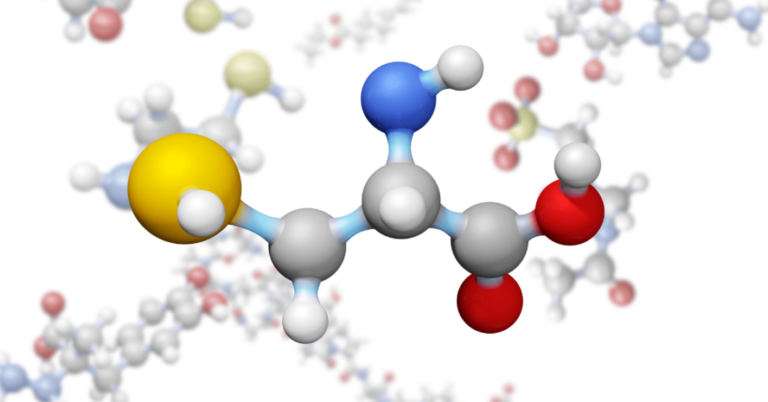Best Time To Take BCAA Amino Acids Before or After Workout?
Some links on this page are affiliate links (including Amazon Associate links) which means that, if you choose to make a purchase, we may earn a small commission at no extra cost to you. We greatly appreciate your support!
When it comes to optimizing your workout routine for maximum muscle growth and recovery, the timing of your nutrient intake is crucial. Among the key players in this game are amino acids, the building blocks of protein. But the question remains: should you consume amino acids before or after your workout? Let’s look into the science behind amino acids, their role in muscle synthesis, and how timing can make all the difference in achieving your fitness goals.
Branched-Chain Amino Acids
Before determining the timing aspect, it’s essential to understand the role of amino acids in muscle growth and repair. Amino acids are organic compounds that combine to form proteins, crucial for building and repairing tissues, including muscle tissue. Of the 20 amino acids that make up proteins, nine are essential, meaning the body cannot produce them on its own and must obtain them from the diet. These essential amino acids play a vital role in stimulating muscle protein synthesis (MPS), the process by which muscle fibers are repaired and rebuilt stronger after exercise.
Taking Amino Acids Pre-Workout
Consuming amino acids before a workout has garnered attention for its potential to enhance performance and muscle growth. One amino acid that stands out in pre-workout supplementation is branched-chain amino acids (BCAAs), namely leucine, isoleucine, and valine. Leucine, in particular, is known to stimulate MPS directly, triggering muscle growth pathways within the body.
Research suggests that consuming BCAAs before exercise may help reduce muscle protein breakdown during intense training sessions, ultimately leading to greater muscle preservation and growth. Additionally, pre-workout amino acid supplementation can provide an energy source for the muscles, potentially delaying fatigue and improving overall performance during exercise.
Taking Amino Acids Post-Workout
On the other hand, consuming amino acids after a workout is equally important, if not more so, for facilitating muscle recovery and growth. Following intense exercise, the body’s muscles undergo stress and damage, triggering an immediate need for repair and rebuilding. This is where post-workout nutrition plays a critical role.
Consuming amino acids after exercise provides the body with the necessary building blocks to initiate the repair process and promote muscle protein synthesis. Studies have shown that consuming a combination of carbohydrates and protein, including essential amino acids, within the post-workout window (typically within 30-60 minutes after exercise) can enhance muscle recovery and promote greater gains in muscle mass and strength.
Timing Matters: Best Time To Take BCAAs
While both pre- and post-workout amino acid supplementation offer potential benefits for muscle growth and recovery, the timing of intake may influence their effectiveness. Pre-workout amino acids can provide an immediate source of energy and support muscle protein synthesis during exercise, while post-workout amino acids are essential for replenishing depleted stores, repairing muscle tissue, and promoting long-term muscle growth.
Ultimately, the best approach may vary depending on individual preferences, goals, and the specific demands of your workout regimen. Some individuals may benefit more from pre-workout supplementation to boost energy and performance, while others may prioritize post-workout supplementation for enhanced recovery and muscle repair.
Benefits of Taking BCAA Powder and Amino Acid Supplements
When it comes to enhancing athletic performance and supporting muscle growth, BCAA powder and amino acid supplements have gained popularity among fitness enthusiasts. Here are some of the key benefits associated with their consumption:
Stimulate Muscle Protein Synthesis (MPS): Branched-chain amino acids (BCAAs), including leucine, isoleucine, and valine, play a crucial role in stimulating muscle protein synthesis (MPS). Leucine, in particular, acts as a potent trigger for MPS, initiating the process of muscle repair and growth.
Reduce Muscle Protein Breakdown: BCAAs have been shown to reduce the breakdown of muscle protein during exercise, especially during intense training sessions or periods of calorie restriction. By preserving muscle tissue, BCAAs help prevent muscle loss and support overall muscle health.
Enhance Exercise Performance: Consuming BCAA powder before or during exercise can provide an immediate source of energy for the muscles, potentially delaying fatigue and improving endurance. This can be particularly beneficial during prolonged or high-intensity workouts, where maintaining energy levels is crucial for performance.
Speed Up Recovery: Amino acid supplements, including BCAAs and essential amino acids (EAAs), can aid in post-exercise recovery by providing the necessary building blocks for muscle repair and regeneration. By replenishing depleted amino acid stores, these supplements help accelerate recovery time and reduce muscle soreness following intense exercise.
Support Muscle Growth: By promoting MPS and reducing muscle protein breakdown, BCAA powder and amino acid supplements support muscle growth and hypertrophy over time. When combined with resistance training and a balanced diet, supplementation with BCAAs and EAAs can help maximize muscle gains and improve overall body composition.
Convenience and Versatility: BCAA powder and amino acid supplements are convenient and versatile options for athletes and fitness enthusiasts looking to optimize their nutrition regimen. They can be easily mixed with water or added to shakes and smoothies, making them a convenient choice for on-the-go supplementation.
May Aid in Fat Loss: Some research suggests that BCAA supplementation may help promote fat loss and improve body composition, particularly when combined with a calorie-controlled diet and regular exercise. BCAAs have been shown to enhance fat oxidation (the breakdown of fats for energy) and may help preserve lean muscle mass during periods of weight loss.
Support Overall Health: In addition to their benefits for athletic performance and muscle growth, BCAA powder and amino acid supplements also support overall health and well-being. Amino acids are involved in various physiological processes throughout the body, including immune function, hormone regulation, and neurotransmitter synthesis.
BCAA powder and amino acid supplements offer a range of potential benefits for athletes and fitness enthusiasts, including enhanced muscle protein synthesis, improved exercise performance, faster recovery, and support for muscle growth and fat loss. Incorporating these supplements into a well-rounded nutrition regimen can help individuals maximize their athletic potential and achieve their fitness goals.
Conclusion
In the debate over amino acids before or after a workout, the answer lies in understanding the complementary roles they play in optimizing muscle growth and recovery. While both timing strategies offer potential benefits, the key is to ensure adequate intake of essential amino acids throughout the day to support overall muscle health and performance.
Whether you choose to consume amino acids before or after your workout, or both, it’s essential to prioritize consistency and balance in your nutrition regimen. By understanding the science behind amino acids and their role in muscle synthesis, you can tailor your supplementation strategy to maximize your fitness goals and unlock your full potential in the gym.





